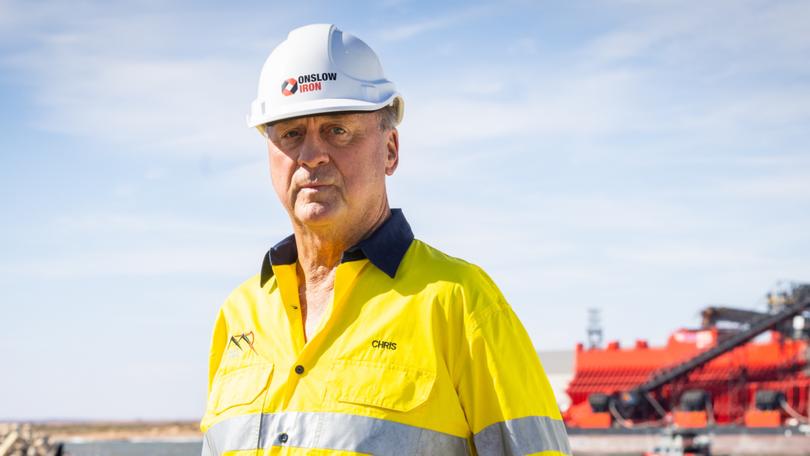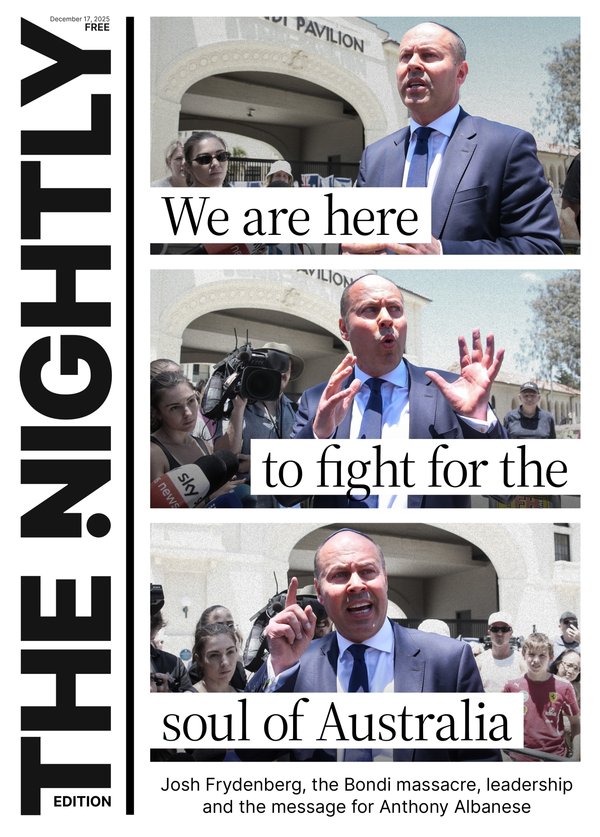Sean Smith: The seven burning issues facing Mineral Resources

Will Chris Ellison actually leave Mineral Resources?
Major shareholder L1 Capital, which has rallied investor support around Ellison, reckons his strategic leadership is too important for Mineral Resources to lose. It argues he needs to remain as chief executive, at least for “the medium term”, for the benefit of shareholders, but with “a more appropriate corporate governance structure” providing increased protection from dodgy behaviour.
L1 is gambling Mineral Resources’ drawn-out search for a successor will give Ellison time to ride out the crisis by re-establishing his leadership credentials and lifting the company’s financial position. And an 18-month “orderly” management handover provides plenty of time for an unlikely rehabilitation.
Sign up to The Nightly's newsletters.
Get the first look at the digital newspaper, curated daily stories and breaking headlines delivered to your inbox.
By continuing you agree to our Terms and Privacy Policy.On corporate governance grounds, his position is untenable. But it‘s not out of the question that chair James McClements’ own successor next year bows to inevitable sustained pressure from the cheer leaders, pulls the board into one of those U-turns that business do so well and sticks with him.
Who would replace him?
Yes, no-one is irreplaceable.
However, Mineral Resources’ concern will be finding a replacement with Ellison’s contacts, strategic nous and breadth of knowledge about mining and contracting, lithium and iron ore. He has built the group from the ground up into a major mining house that was worth nearly $16 billion just six months ago, and company founders don’t let go easily of their creations.
The replacement will most likely be an outside appointment, as, not unusually at companies run by powerful chief executives, there is no apparent successors within Mineral Resources. Assuming the company sticks to its transition plan, one of the challenges will be whether to keep Ellison on in some capacity to provide advice to the new boss and assuage shareholders.
However, there’s not too many new bosses who want their predecessors hanging around.
What will ASIC do?
The Australian Securities and Investments Commission loves going after big scalps, but its mixed record of success doesn’t live up to its ambitions. The Securities and Exchange Commission it ain’t. And all too often it moves frustratingly slowly, so any action against Ellison could take years to play out.
The corporate cop is already making “preliminary” inquiries into the Mineral Resources matters and Ellison’s conduct, and its interest will be further piqued by Monday’s added disclosures by the company about his conduct, including the deletion of emails. Notably, its armoury includes bans on company directors pulled up for serious misconduct.
What are the chances of a class action?
If you bought into Mineral Resources two weeks ago before Ellison’s conduct was disclosed when its shares were trading at $45, you’re not happy. While shareholders were kept in the dark about the chief executive’s tax settlement and the board probe into his related-partly dealings, the Mineral Resources board has argued the information did not need to be publicly disclosed because it was not price sensitive.
However, that argument has foundered on the plunge in its share price after the revelations were made public. The stock bottomed at $34 before clawing back some ground to finish at $38.42 on Tuesday. The class action lawyers are sniffing around.
Has Ellison breached his duty to Mineral Resources’ shareholders?
The peak body for company directors, the Australian Institute of Company Directors, isn’t about to be drawn too deep into the Mineral Resources affair. However, its website describes a director’s duty thus:
“The overriding priority among the fiduciary duties of directors is the obligation of undivided loyalty. This obliges the director to act honestly, in good faith and to the best of his or her ability in the company’s interests. A director must not allow personal advantages to override the company’s interests.”
Does ethical behaviour really matter to investors?
We’re told ad nauseam it does. But then along comes a Mineral Resources and seemingly big investors want to cut a chief executive slack and overlook misconduct because they’re worried about losing money.
Interestingly, as late as Tuesday, only one of the dozen or more shareholders who told Mineral Resources they didn’t want Ellison to go, at least not yet, has had the courage to out themselves and go public with their position. Yet expect these publicity-shy but welded-on Ellison fans to be among the virtue signallers taking the high ground at the next corporate scandal.
What did the board know and when?
There’s still too much shareholders don’t know as to what and when the Mineral Resources board knew about Ellison’s conduct and the allegations later levelled against him. The suspicion is that incarnations of the board over the past 20 years have known about some of the questionable related-party dealings but didn’t have the will to pull him into line.
There’s been no explanation as to why not, or who on the board knew or what triggered the board probe two years ago. Given the extent of his personal dealings with the company, it beggars belief that directors had no idea how of what was going for so long.
Originally published as Sean Smith: The seven burning issues facing Mineral Resources
